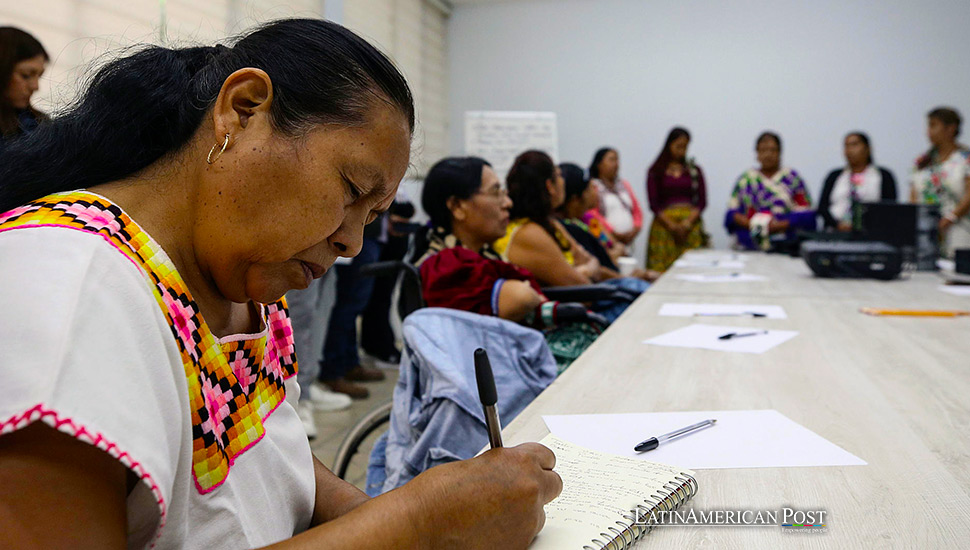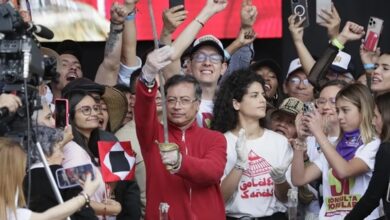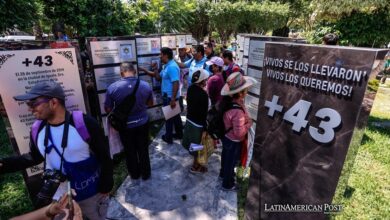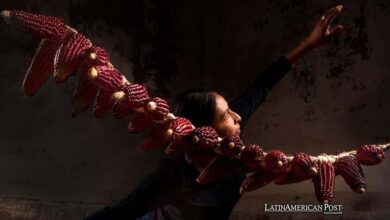Mexico’s Indigenous Women’s Call for Rights and Ancestral Medicine Recognition

In Guadalajara, Mexico, indigenous women’s calls to end violence and recognize traditional medicine highlight a Latin American-wide movement towards asserting indigenous rights and preserving ancestral cultures, resonating deeply across the continent.
A Pivotal Gathering in Guadalajara
In the heart of Guadalajara, Mexico, an influential assembly of indigenous women marked a significant chapter in the ongoing struggle for rights and recognition. This gathering, aligned with International Women’s Day, transcended national boundaries, symbolizing a collective outcry against violence and an appeal to acknowledge ancestral medicine as a fundamental human right. This event was not merely a local or national demonstration but a reflection of a broader movement across Latin America, where indigenous communities unite in their quest for cultural preservation and the assertion of their rights.
Spearheaded by influential figures such as María de Jesús Patricio ‘Marichuy,’ a Nahua healer and former spokesperson for the Zapatista movement, this assembly brought together a diverse group of indigenous women across Mexico. These women, representing communities like the Mazahua, Purépecha, Wixáritari, Hñähñu, and Mixteca, convened to share wisdom, challenges, and strategies for safeguarding their cultures and rights.
The discussions highlighted the pervasive issues of violence, discrimination, and marginalization faced by indigenous women, particularly those migrating to urban centers. Cristina Martínez, a Mazahua leader and advocate for women’s rights, emphasized the compounded challenges of physical and psychological violence, discrimination, and classism, exacerbated by barriers such as language and traditional customs. Yet, through resilience and collective effort, these women have made significant strides in amplifying their voices and asserting their place in the national discourse.
The Crucial Role of Traditional Medicine
A focal point of the assembly was the crucial role of traditional medicine in indigenous communities, especially where access to conventional healthcare is scarce. Participants called for the government’s recognition of practices like midwifery, which, despite their importance in indigenous healthcare, have been marginalized and overlooked. This demand for recognition goes beyond healthcare access, touching on deeper issues of cultural identity preservation and the validation of ancestral knowledge.
This call from Guadalajara is echoed throughout Latin America, from the Andes to the Amazon, where indigenous groups fight to recognize their languages, traditions, and governance systems amidst challenges like environmental degradation and social marginalization. The movement in Mexico mirrors the broader struggles and aspirations of indigenous communities across the continent, highlighting a shared heritage and interconnected struggles.
With over 23 million individuals identifying as indigenous, Mexico’s engagement in this movement is crucial. However, the significance of this struggle extends beyond national borders, underscoring the shared heritage and united efforts of Latin America’s indigenous peoples. As these women, and countless others across the continent, continue to raise their voices, their demands for rights, recognition, and respect serve as a powerful reminder of the strength found in unity and the enduring resilience of cultural identity.
Indigenous Women as Beacons of Change
The struggles and achievements of indigenous women in Mexico serve as a beacon for similar movements across Latin America, where indigenous communities face analogous challenges. In countries like Bolivia, Ecuador, and Guatemala, indigenous movements have also gained momentum, advocating for rights, land, and cultural recognition. While rooted in specific national contexts, these movements share a common goal: the affirmation of indigenous identity and the protection of ancestral lands and traditions.
The movement in Mexico, particularly the push for the recognition of ancestral medicine, resonates with efforts across the continent to reclaim traditional healthcare practices. In Peru, for example, the Quechua and Aymara communities have long advocated for integrating traditional medicine into the national healthcare system, emphasizing the importance of ancestral knowledge in holistic health and well-being.
Similarly, in Brazil, the indigenous peoples of the Amazon have been at the forefront of movements to protect their territories and way of life, including preserving traditional medicinal knowledge threatened by deforestation and commercial exploitation. These parallel struggles highlight the interconnectedness of indigenous rights and environmental stewardship, underscoring the importance of conventional expertise in addressing global health and ecological crises.
The collective efforts of indigenous women and communities across Latin America underscore the need for a regional approach to indigenous rights that respects and incorporates traditional knowledge and practices. The assembly in Guadalajara serves as a reminder of the power of collective action and the importance of solidarity across borders in the fight for justice, recognition, and the preservation of cultural heritage.
Rethinking Development, Health, and Identity
As the movement for indigenous rights and the recognition of ancestral medicine continues to grow, we must reconsider notions of development, health, and cultural identity. It calls on governments, societies, and individuals across Latin America and beyond to listen, learn, and support the efforts of indigenous communities to protect their rights and preserve their cultures. In doing so, we honor these communities’ contributions to our shared history and biodiversity and ensure a more just and sustainable future for all.
Also read: Immersive Frida Kahlo Exhibit Debuts in Mexico, Celebrating Artistic Legacy
The voices of indigenous women in Guadalajara, echoing across Latin America, remind us of indigenous cultures’ enduring strength and resilience. Their calls for justice, recognition, and the preservation of ancestral knowledge resonate as a collective demand for a future where indigenous peoples’ rights and contributions are acknowledged and celebrated. As this movement unfolds, it stands as a testament to the power of unity and the indomitable spirit of indigenous communities in their quest for dignity, respect, and the right to define their futures.





